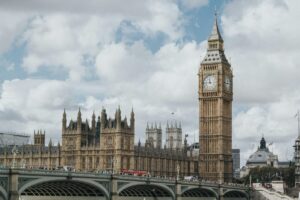Our bluffer’s guide to the thinkers you’re really supposed to know about continues this week with Hyman Philip Minsky, who was never properly appreciated until it was too late to ask him to expand. You don’t know what you’ve got till it’s gone. Born 1919 in Chicago. Died 1996 in Rhinebeck, New York
“Stability is destabilising”
Was there ever such an under-appreciated genius as Hyman Minsky? Having spent so much of his life as a ridiculed outsider, how ironic that he came to prominence twelve years after his death, as the prophet who had foreseen the relationship between poor credit practices and recurring asset bubbles.
Yes, yes, but we take all that debt stuff for granted, don’t we? Everybody knows that loose lending was what created the 2007 subprime emergency that then engendered the 2008 banking collapse. What can have been so original about this strange man’s thoughts about credit?
Good question. And would we ever have heard of Minsky at all if it hadn’t been for Paul Krugman (left-leaning New York Times op-ed writer and Nobel Prize winner), who entitled one of his 2008 addresses “The Night They Re-Read Minsky”. (A filmic pun on an unworthy work of fiction, by the way.)
The Awkward One
Another good question. But then, Minsky had never made it easy for people to accept him. Not for him the laborious strictures of building mathematical models which might validate his theories. Instead, he had simply expounded them verbally, while the central bankers and economists chose to ignore his insistence that private debt should be considered as an important economic factor. Which is why it’s especially sweet that central bankers in many countries – including Janet Yellen and formerly Mervyn King -are now advocating the incorporation of a Minsky factor into their policy models.
The awkward Mr Minsky rejected one of the most fundamental central tenets of modern economic thinking –that a modern market economy is fundamentally stable, and that its progress is periodically interrupted by external shocks – a war, an oil price shock, or a game-changer like the internet. At other times, however, it reverts to its usual cosy “equilibrium” and life goes on as before.
Minsky, however, said the system was perfectly capable of generating its own devastating shocks without the need for outside help. And that the main cause of these shocks was complacency.
The Three Debt Stages
Minsky believed that a confident society moved through a cycle of three phases, which he called the Hedge, the Speculative and the Ponzi stages. During the Hedge phase, which will often follow a financial crisis, both banks and borrowers are cautious about debt, and nobody borrows debts where they can’t afford to repay both the principal and the interest.
The Speculative phase moves the temperature up a little. Borrowers start to take on loans where they can only afford the interest – and banks agree to this as long as the loans are secured against hopefully rising assets. But the dangerous Ponzi phase starts when banks start to lend on the necessary assumption that asset prices will rise (or the loans will be affordable).
All it takes at this moment is a Minsky Moment – that awful split-second where everyone realises that asset values are based on assumptions of the borrower’s ability to pay, but where borrowers simultaneously go into default. At which point negative equity generates real losses, the bubble bursts and the financial market can be utterly endangered.
A Minsky Moment in China?
That, of course, is a hopeless over-simplification of the theory, which also encompasses the role of banking. But look into it, and you’ll find people wondering publicly whether China’s housing asset situation is becoming a dangerous bubble, and whether its banking system might be teetering on the edge? Our guess is no – because China’s consumer revolution is still consumption-based, not asset-based. But it’s good that the questions are being asked.















